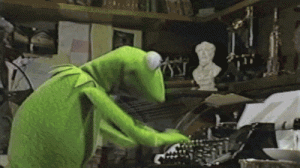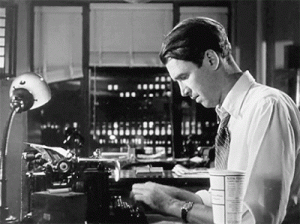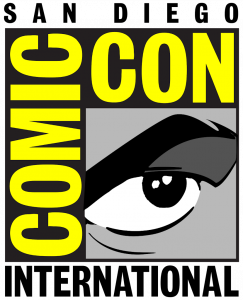So, a few times here on the ranty writing blog I’ve talked about diminishing returns. The idea the more you read and study about a topic—say, writing—the less you’re likely to get out of it. F’r example…
Most of us start of by picking up a few books on writing or maybe taking a creative writing course in high school or college. Depending on where you live or what you’ve got for resources, maybe you attended a conference or convention where you got to listen to writers, editors, and agents talk about writing. I know I did.
Eventually, though, we need to stop with the books and classes and online seminars because we hit a point where the information just starts to repeat. We’re just hearing the same things over and over again. Yeah, sure, maybe someone might put a new spin on this or give a better example of that, but was it really worth the fifteen-to-one hundred-ninety dollars I paid to learn it? Or the time I put into reading/ attending it?
But since it’s the start of the year, I wanted to talk about another kind of diminishing return. And this one’s a little more personal. For each of us.
Sooner or later, we all develop a certain approach to writing that works for us. A process, if you will. Everyone’s process is unique. I tend to work at my desk, but maybe you work best at a coffee shop on your tablet, and she writes best on her phone, and he (to fall back on an old example) does all his best work with dictation software while wearing that ren faire corset. Whatever it is, we’ve tried a few things—maybe a lot of things—and figured out what lets us get the most literary bang for our writing buck. And that whole metaphor fell apart but you see where I was going with it.
For some folks, these habits and methods we’ve accumulated work great and continue to work great. Project after project, we know we can do A-B-C-D and get a great manuscript. So naturally, we keep doing it.
But sometimes, for any number of reasons, my process begins to be less efficient. It doesn’t give me the same results as fast. Or maybe it goes just as fast, but the quality has slipped a lot. Maybe time and quality are both the same but it feels like it’s taking a lot more effort. Our returns, one might say, are diminishing.
And yet… we stick to it. Because this is our process. We found it. It works for us, right?
Right?
I was lucky that very early on in my writing process I had a mentor/ professor who emphasized not getting pinned down to one thing. Most of the time our class would be in our assigned room but sometimes, just for the heck of it, he’d have us all move to another room. A virtually identical room, yeah, but oddly enough we’d all end up in different seats, next to different people, sometimes facing a new direction just because of how that room was set up. When it got warmer he had us meet outside by a big tree once. One time (after making sure we were all old enough) he took us to the professor’s lounge at the top of the campus hotel and bought the class a round while we talked about the latest round of stories and writing.
I didn’t like using outlines for a long time. I had bad results with them, so my book-writing process was much more free-form. But eventually I decided I needed to get better with them and have a lot more things figured out ahead of time, because my career was taking off and I needed to be able to talk with my agent and editors about books I hadn’t written yet.

I also tend to write here in my office at my desk. I know the setup. I know my surroundings. Some people (like my beloved) might call it cluttered, but I find it so comfortable and familiar I can easily focus past all of it. And yet sometimes I still do other things. About 2/3 of the first draft of Paradox Bound was written on legal pads in a coffee shop back in LA. At the moment I’m about 60K into a new project (TOS, if you’re subscribed to the newsletter) and that’s also mostly written on legal pads, too, sitting out on the back deck. Because it just worked better.
So here’s your New Year’s nudge. Take a long, hard look at your process. Has it diminished? Is it still working as well as it used to? Does it give you the results you want?
If it isn’t… change it. Try something new. Do something different.
This is a scary idea, I know. The worry that I might try something new and that might not work, either. And now I’ve wasted more of my precious writing time smacking my head with legal pads or drinking overpriced coffee or strapping myself into this goddamn corset that wasn’t even the color I wanted! Trying something new feels risky.
Yeah. It is. Art is risky
Y’see, Timmy, we’ve got to take some risks now and then if we want to improve, and sometimes that means accepting we should try doing things differently. So be open to new ideas. Be open to the idea that you might need to be open to new ideas.
Next time… maybe I’ll talk about a few other things we should accept.
Until then, go write.






